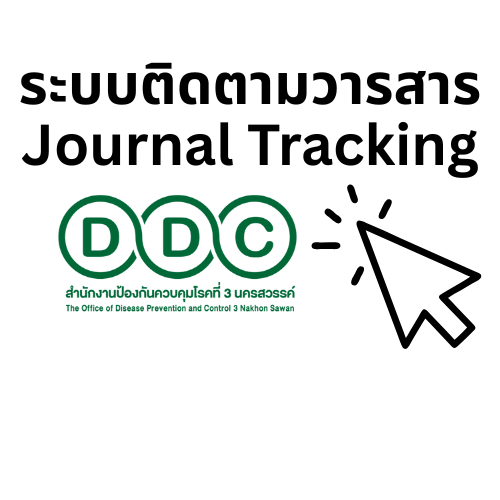Effects of Behaviors Modification Educational Program to decrease the Progression of Chronic Kidney Disease in Diabetic Patients at Takfa Hospital, Nakhonsawan Province.
Keywords:
Educational Program, Behaviors Modification, Chronic Kidney Disease (CKD), Diabetic PatientAbstract
The purpose of this quasi – experimental research were to develop behaviors modification educational program and study effect of this program, compaired bef๐re and after results to develop behaviors modification educational program to delay chronic kidney disease in diabetic patients at Takfa Hospital, Nakhonsawan Province. The population were patients with type 2 diabetes mellitus with potential to chronic kidney disease clinic, Takfa Hospital. The value was estimated glomerular filtration rate (eGFR) in 3rd stage who met the criteria. The random sample were to selects match pair group control and compare group equally with 30 persons. The data were collected using demographic data form, self –efficacy questionnaire, the knowledge of chronic kidney disease questionnaire and the preventtion behavior questionnaire. Data were analyzed using frequency, percentage, mean, standard deviationand paired-sample t-test for pre – post test among control group and comparison group and analyzed using independent t-test for the experimental group and the control group.
The findings of the study showed that the self –efficacye, the knowledge of chronic kidney disease, the prevention behavior and eGFR were to deference significantly among the experimental group and the control group (p<0.05). The intervention program from this study should be to improve the behaviors such as regarding diet, exercise, and meditational compliance in chronic kidney disease and improve quality of life among diabetic patients.
References
2. วิชัยเอก พลากร, เยาวรัตน์ ปรปักษ์ขาม, สุรศักดิ์ ฐานีพานิชกุล, หทัยชนก พรรคเจริญ, วราภรณ์เสถียร นพเกล้าและกนิษฐา ไทยกล้า. รายงานการสำรวจสุขภาพประชาชนไทยโดยการตรวจร่างกายครั้งที่ 4 พ.ศ. 2551-2.นนทบุรี: เดอะ กราฟโก ซิสเต็มส์ ; 2552.
3. สมาคมโรคไตแห่งประเทศไทย. การจัดการดูแลผู้ป่วยโรคไตในระยะเริ่มต้น.กรุงเทพฯ: ยูเนียนอุลตร้าไวโอเล็ต ; 2555.
4. โรงพยาบาลตากฟ้า. รายงานประจำปี 2556. เอกสารถ่ายสำเนา.
5. Bandura, A. “Self-efficacy Theory: toward a unify theory of behavior change”, 1977.
6. Bandura, A “Self-efficacy Mechanism in human Agency”, American sychologist.37,2,122-147.1982 “
7. Stanford Patient Education Center. “Diabetes Self-efficacy Scale” (Online) Available World –Wide Web: http://patienteducation. Stanford.edu/research/sediabetes.html. 2010.
8. ศิริชัย กาญจนวาสี. ทฤษฎีการทดสอบแบบดั้งเดิม.(ฉบับปรับปรุง). กรุงเทพฯ : จุฬาลงกรณ์มหาวิทยาลัย;2556.
9. รัตน์ อิมามี. “หน่วยที่ 9 เครื่องมือการวิจัย” ในประมวลสาระชุดวิชาสถิติและระเบียบวิธีวิจัยในงาน สาธารณสุข บัณฑิตศึกษา สาขาวิชาวิทยาศาสตร์สุขภาพ มหาวิทยาลัยสุโขทัยธรรมาธิราช. กรุงเทพฯ: 2543.
10. อัจฉราพรรณ ค้ายาดี. ผลลัพธ์ของโปรแกรมการจัดการด้วยตนเองในผู้ป่วยเบาหวานชนิดที่ 2 ที่มีความเสี่ยงโรคไตวายรื้อรังต่อพฤติกรรมการป้องกันโรคไตเรื้อรังและระดับฮีโมโกลบินเอวันซี รายงานวิจัยโรงพยาบาลบ้านไร่. อุทัยธานี : 2557.
11. ปิ่นแก้ว กล้ายประยงค์. ประสิทธิผลของโปรแกรมสุขศึกษาในการสร้างเสริมพฤติกรรมการปฏิบัติตัวเพื่อชะลอการเสื่อมของไตสู่ภาวะไตเรื้อรังระยะสุดท้ายของผู้ป่วยไตเรื้อรังระยะที่ 3 และ 4 ที่แผนกผู้ป่วยนอกอายุรกรรมโรคไต โรงพยาบาลรามาธิบดี, วิทยานิพนธ์ปริญญาวิทยาศาสตรมหาบัณฑิต(สุขศึกษา). กรงเทพฯ : บัณฑิตวิทยาลัย มหาวิทยาลัยเกษตรศาสตร์; 2550.
Downloads
Published
How to Cite
Issue
Section
License
Copyright notice
Article published in the Journal of Disease and Health Risk DPC.3 Nakhon Sawan. It is considered a work of academic research and analysis as well as the personal opinion of the author. It is not the opinion of the Office of Disease Prevention and Control 3, Nakhon Sawan. Or the editorial team in any way Authors are responsible for their articles.
Privacy Policy
Name, address and e-mail address specified in the Journal of Disease and Health Risk DPC.3 Nakhon Sawan. It is used for identification purposes of the journal. And will not be used for any other purpose. Or to another person.








